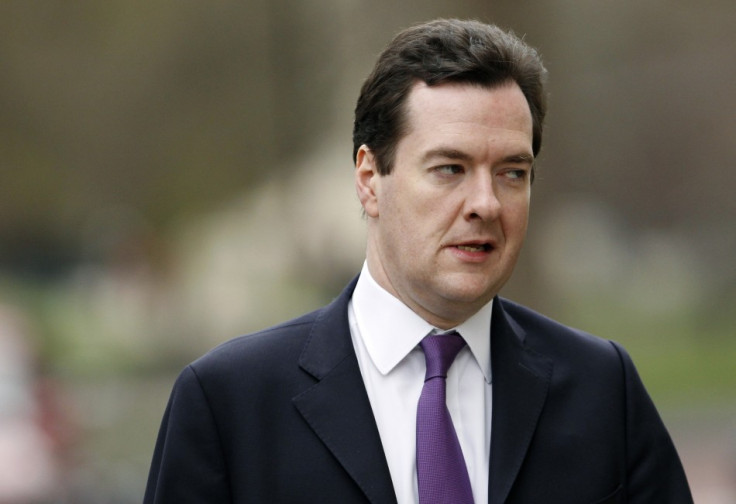George Osborne and Mervyn King Wrong to say Eurozone Hurting UK Growth: Barclays

Barclays has raised doubts over the impact the eurozone crisis is having on the British economy as opposed to government austerity in an attack on Chancellor George Osborne and the Bank of England, who have both blamed woes in the single currency area for pushing the UK back into recession.
Osborne told reporters before a summit of EU finance ministers that the eurozone crisis is "having a real impact" on Britain's growth, while the Bank of England governor Sir Mervyn King has repeatedly warned that the sovereign debt crisis on the continent is dampening the UK economy.
In a research note on the German GDP figures, which showed much better-than-expected growth of 0.5 percent in the first quarter, Barclays, the UK's fourth biggest bank, hit out at King and Osborne.
"The strong showing by the German economy clearly raises some doubt about claims by British officials that the UK recession is predominantly caused by the euro area crisis instead of austerity measures in the UK," said Barclays.
This is in direct contrast to what Osborne said.
"The British recovery has been damaged over the last two years not by Britain getting a grip on its public finances, but by uncertainty in the eurozone," Osborne said.
"It is that uncertainty, not austerity, that is doing the real damaged to the European economy, and indeed the British recovery."
UK in recession
First estimates on the UK's first quarter GDP show that the economy contracted by -0.2 percent, with a -4.8 percent slowdown in the construction sector weighing heavily on overall output.
This is such a drastic slowdown that the Office for National Statistics (ONS) has said it could push the UK's GDP figure down by another 0.1 percent.
It follows on from a 0.3 percent contraction in the final quarter of 2011, plunging the UK back into recession.
Austerity or bust
Britain's government insists that it must stick to its original plan of government austerity in order to clear the budget deficit and control public finances, else risk the UK's position as a safe haven for investors and its ability to borrow money at a low rate.
UK 10-year gilt yields hit their lowest ever rate at 1.87 percent as investors seek safety in the midst of eurozone uncertainty.
Despite managing to keep Britain's borrowing costs down, the government has so far failed to get the economy growing in the wake of tens of billions of pounds in cuts.
Osborne and his Treasury had hoped that where the public sector was drawn back, the private sector would move in and take over, but this appears not to have happened.
Some are saying that the UK government can still afford to spend in order to grow the economy and it is only through doing this that the deficit can truly be serviced.
Others argue that the government should slash business rates and income tax to put more money in people's pockets and get everyone in Britain spending their way out of recession.
In the absence of government spending or meaningful tax breaks the Bank of England's monetary stimulus programme, worth £325bn, is seen as the last bastion of hope for UK growth - though it appears to have failed.
Its quantitative easing through the asset purchase facility saw the Bank buy up high quality assets, such as gilts, in order to improve market liquidity in the hope that businesses would use this cash injection to invest in growth.
A recent Ernst & Young report accused businesses of hoarding this cash injection form the central bank rather than spending it, defeating the object of the stimulus.
The latest UK economy figures appear to vindicate this view.
© Copyright IBTimes 2025. All rights reserved.






















